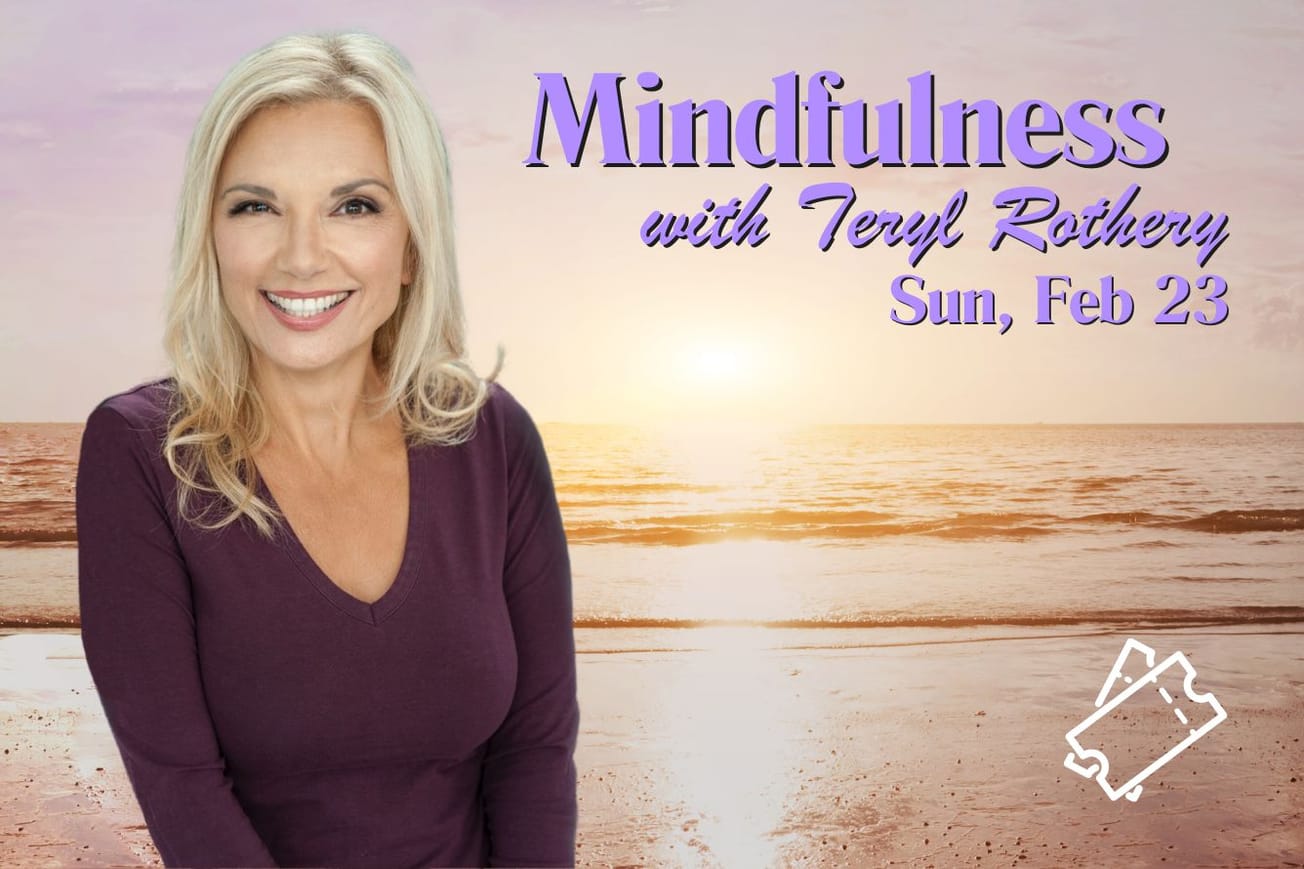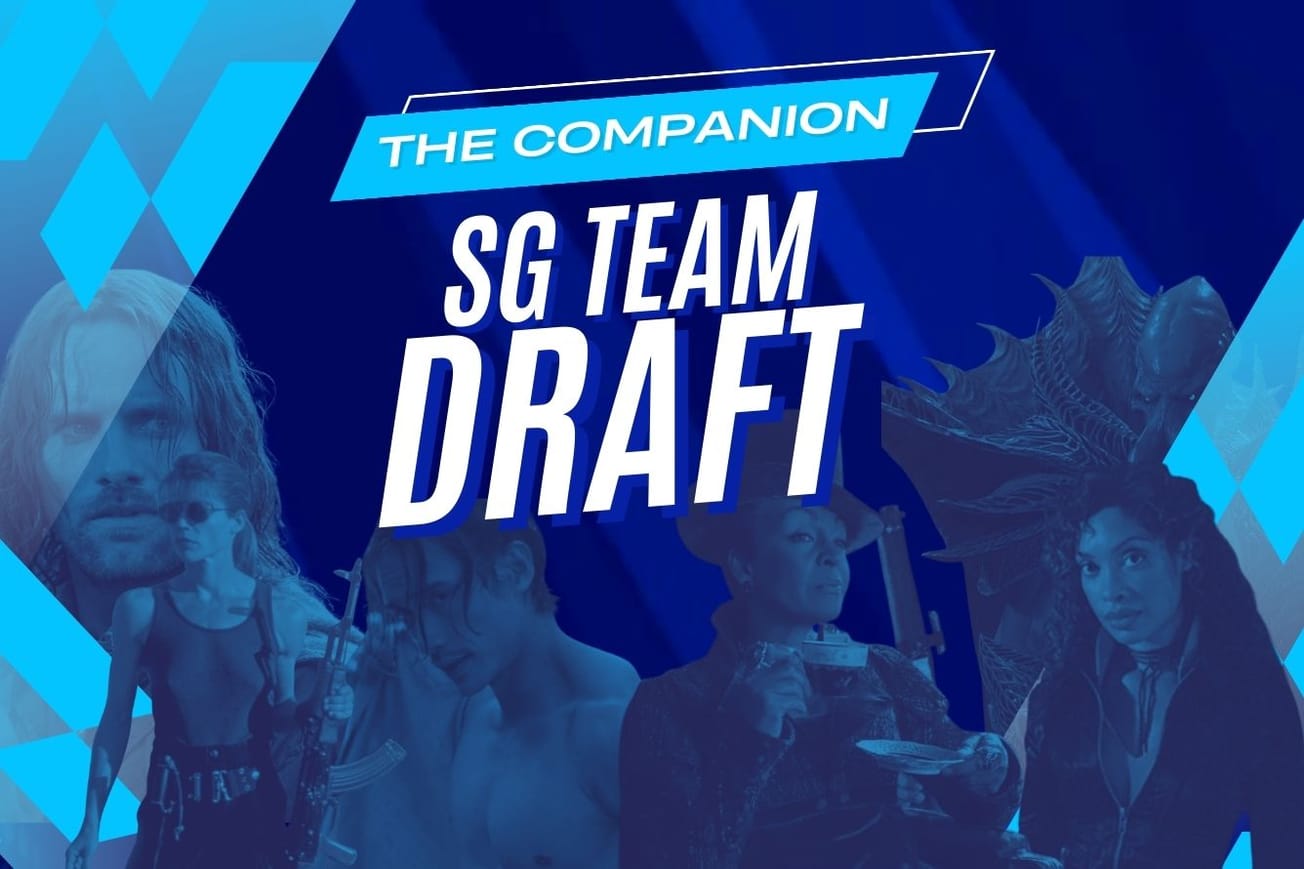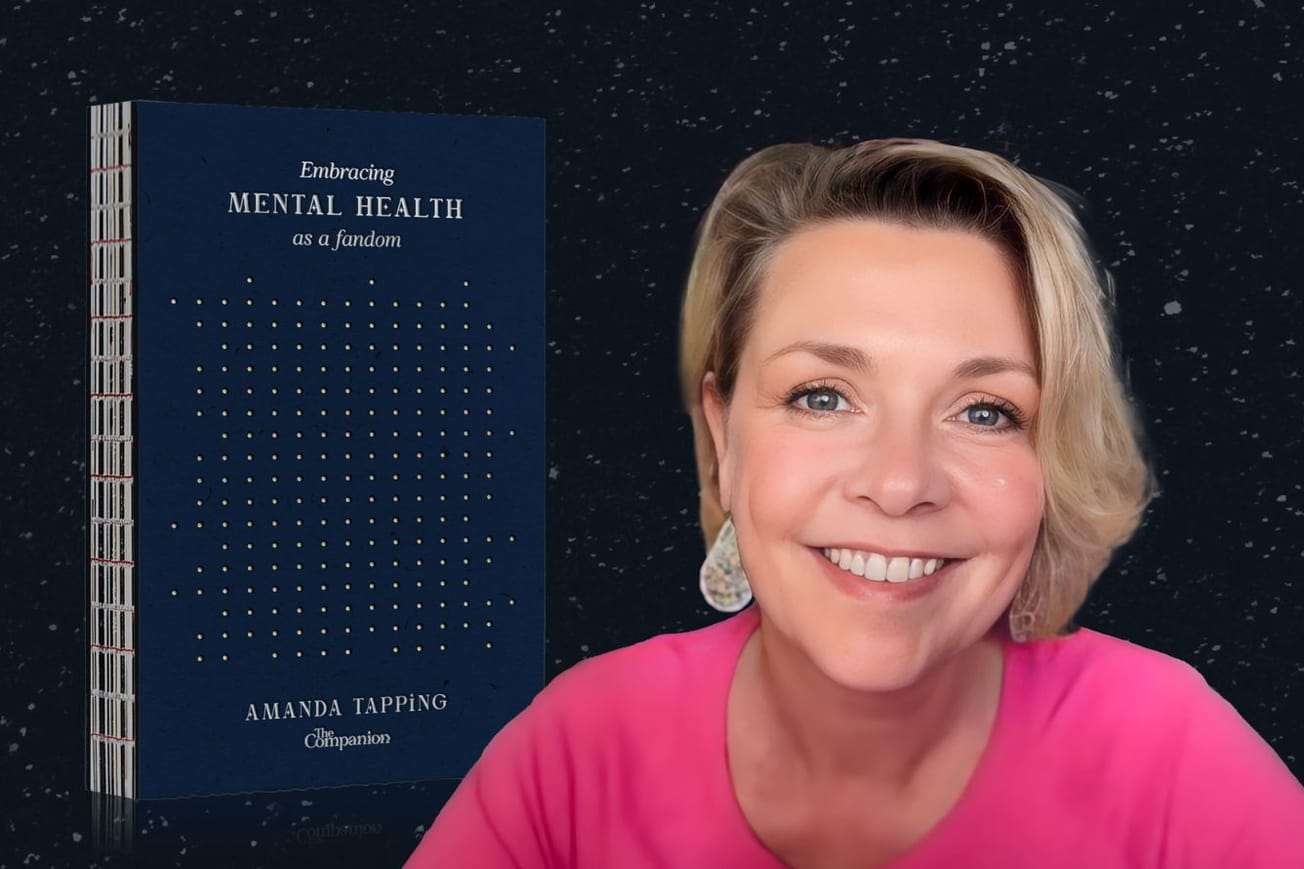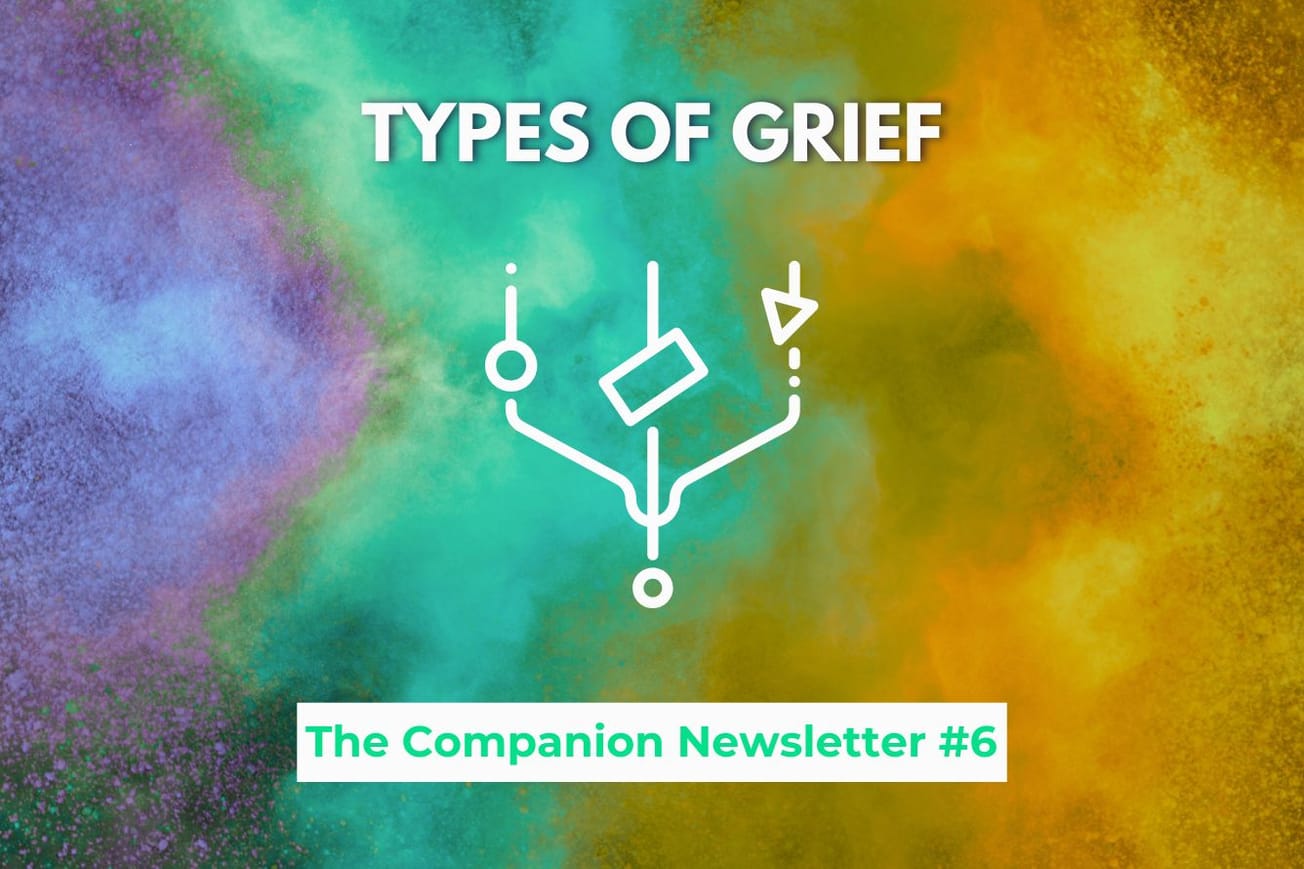Featuring a complete guide to all 214 episodes and two movies, Chevrons Locked takes a deep dive into all things SG-1, episode-by-episode, season-by-season, bringing you behind-the-scenes commentary on it all. This is the book every fan has been waiting for!
Stargate SG-1 Season 9 saw the addition of Ben Browder, more or less filling O’Neill’s place as Lieutenant Colonel Cameron Mitchell, which he would play for all of that year and Season 10 as well as The Ark of Truth and Continuum; Claudia Black reunited with Farscape co-star Browder as space thief (and former Goa’uld host) Vala Mal Doran in one episode of Season 8, eight episodes of Season 9, 10 episodes of Season 10 and the two DVD movies; and Beau Bridges as Stargate Command’s General Hank Landry in seasons nine and 10, the two DVD movies and three episodes of Atlantis.
BRAD WRIGHT (executive producer/co-creator): I had said to Michael when he left [following Season 5] that we would do it in such a way that he could potentially come back. At the time it was a little contentious, but I think he recognized that, at the end of the day, it was a gift, because he was, like, 25 years old when he started Stargate. He hadn’t really tested the waters of anything and working on this show was grueling. We were working on a show 22 episodes a year and that is grueling. I remember when he came back in Season 6, writing a script that was a really strong episode, because he had meaty stuff to do. And I had to think that maybe I had not given him enough before. Maybe he was a young actor in the first few seasons with significant chops, who was always basically the support of Richard Dean Anderson. At the same time, Rick’s name was above the title. That’s where MGM wanted us to focus things and what they were spending the money on. When Michael came back, there was more for him to do, because Rick’s role kind of started to get smaller as he pulled back, which is when I pitched the idea of General O’Neill, which meant he wasn’t running and jumping and shooting as much and wouldn’t be needed as much in front of the camera.
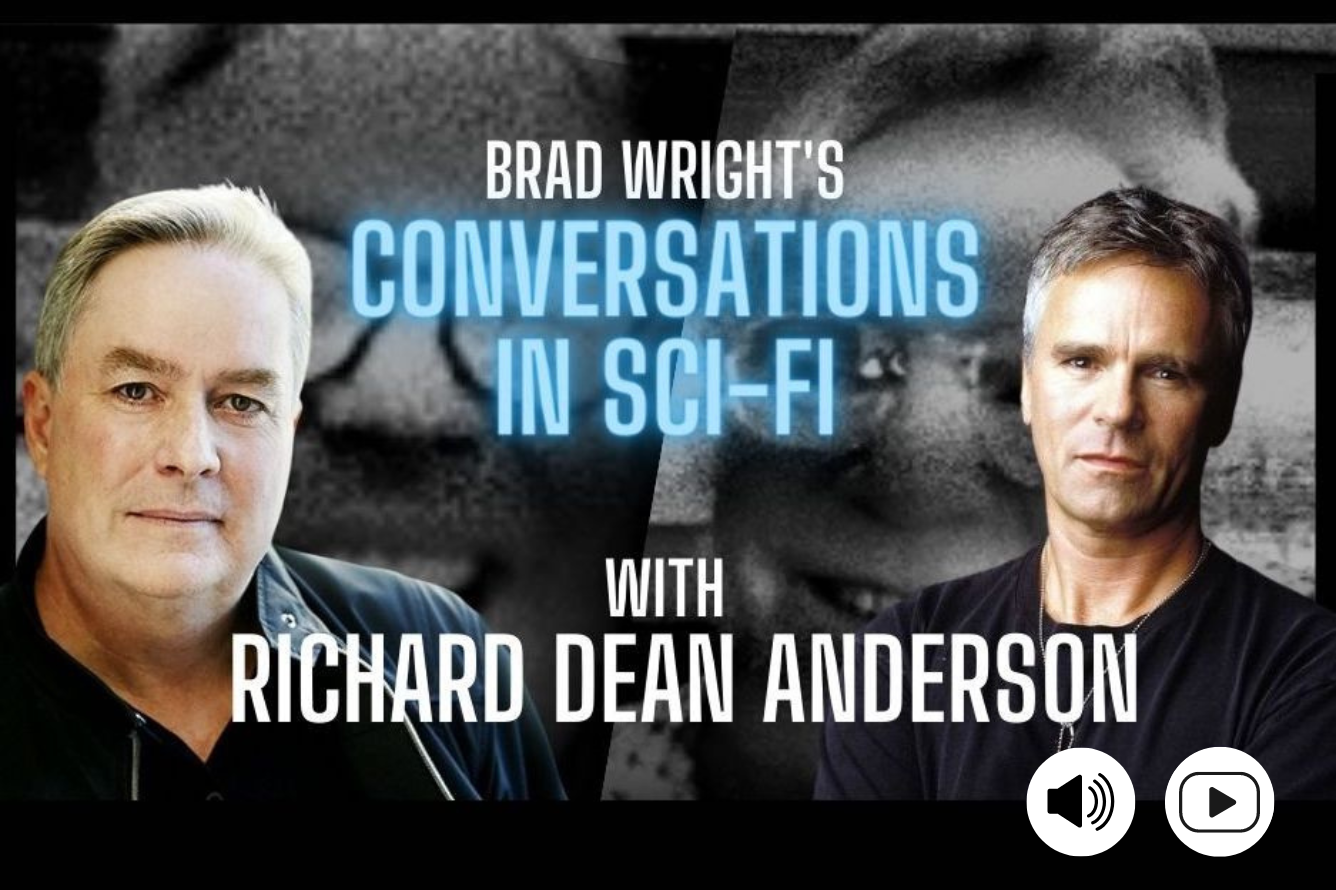
JOSEPH MALLOZZI (executive producer): Every season was different in its own way; each one had its own distinct character. If I was going to make a distinction, to be honest with you, I would make a distinction between seasons one to eight and then seasons nine to 10. That’s where the distinction is for me. In my mind, it was the classic team up until Season 6, at which point Michael left and we brought in Corin [Nemec]. But even as of Season 6, that’s when Rick started to reduce his time on the show. I can’t speak for Michael, but maybe a lot of it had to do with that kind of connection he had with Rick and the Daniel/O’Neill relationship faded a bit with Season 7, but that really had more to do with the fact that Richard Dean Anderson was slowly extricating himself from production. So you had a lot less of that glue, that core relationship, between Jack and Daniel and, for many fans, the heart of the series.
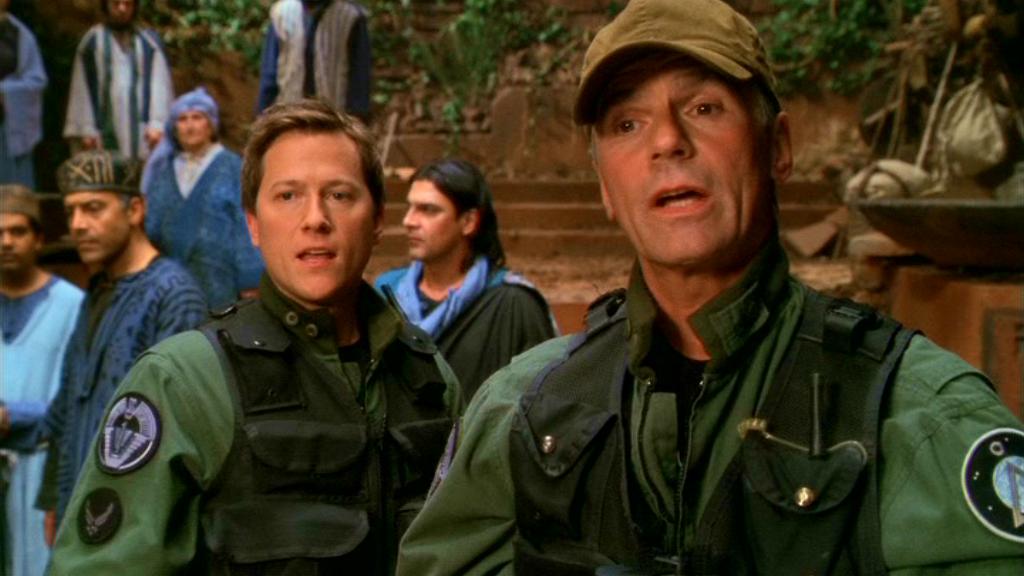
PAUL MULLIE (executive producer): For me, it was just a natural progression or evolution of a show that lasted so long that it had to change, otherwise it would have just been boring and the audience would have stopped watching. It was never a need to take a different direction, it was just looking for avenues to tell stories. All sorts of new avenues came about with a change in tone. I think the show became maybe a little more serious, a little bit more character-driven, and a little less Saturday afternoon syndication. For me, again, it was never a deliberate thing, it was just that we’ve got these new characters coming in. Some people are leaving, some people are coming in, we’ve got new devices, new aliens — whatever — and it was a natural evolution.
ROBERT C. COOPER (executive producer): I would say that Michael’s character was a massive part of the fabric of the show and the dynamic between Rick and Michael was great. Plus, Daniel Jackson was a legacy character going back to the original movie and in many ways a character that was the heart and soul of the show. Not taking anything away from O’Neill, Carter, or Teal’c, but he was a humanitarian. They were not one-dimensional characters by any means, they all contributed, but at the end of the day Carter was a little more science-leaning; O’Neill was the military guy and Teal’c was our Jaffa ambassador, so to speak, and Daniel really served the role of being the social humanitarian. So aside from losing Michael, we had a hole in the team that we had to fill. And, look, anytime you make those kinds of changes in a situation that’s working, you’re nervous about it. But the success we had bringing in Jonas, and his ability to sort of blend in, was a testament to the show and the franchise.
CHRISTOPHER JUDGE (actor, “Tal’c”): There was somewhat of a sense of being sad that Rick and Michael Greenburg and those people had left and kind not knowing what the interpersonal relationships were going to be. All of our fears were allayed very quickly. No disrespect to anyone who was on the show before or those relationships, but I can honestly say that it was the best time I’d had since I’d been on the show. It was great. We had the safety of the Stargate franchise, but this really was like an entirely new show. And we were just having a ball. I think the tone of the show was different. Claudia just gave the show something that it never had. It’s always had its underlying sense of humor, but with her, it wasn’t so underlying.
As an actor, let’s face it, I’d been doing this for eight years and it was tough to find new challenges or any freshness. So it became that early excitement [again] of trying to find your character and where your character fits into the general diaspora. For as much as it was said to be a team, SG-1 was always “Rick and the other three mooks.” You know what I mean? Then in the previous few years, it became “the three guys and Rick when he’s here.” Then it really was a true team, and just like in any group of people, you’re always kind of searching to see where you fit in within the group.
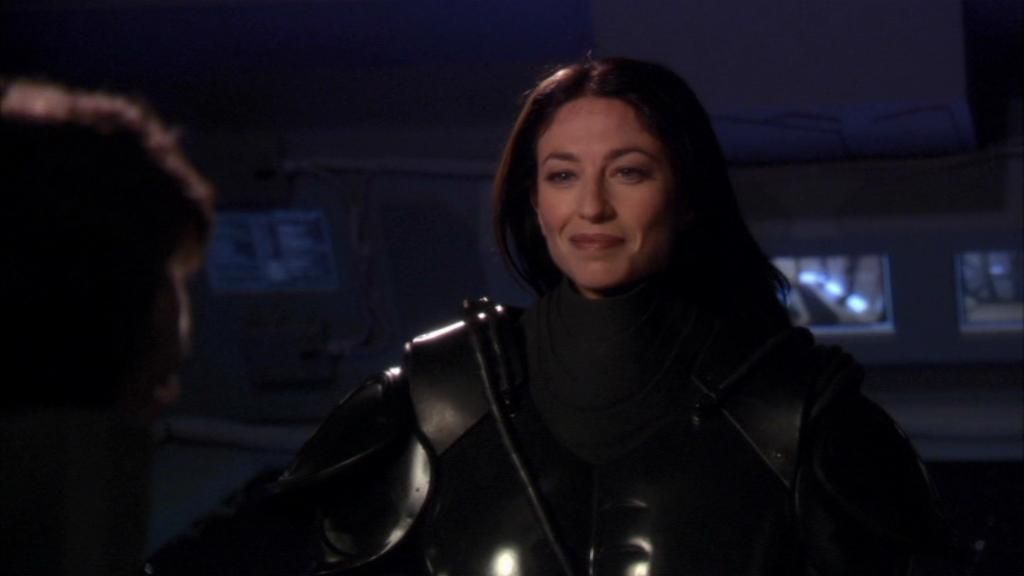
JOSEPH MALLOZZI: Many fans, and I, thought the Jack/Sam relationship was equally as important as the Jack/Daniel one. It’s interesting, because very much at that time we saw the fandom wars, as they call them, between the Sam/Jack shippers and the Jack/Daniel slashers. What was also interesting is that the fans tended to pick apart every little nuance of the show. For instance, in one episode Daniel and Sam were captured and held in a warehouse. O’Neill and, I think, Teal’c were there to save them and O’Neill went to Sam first. And, of course, the Jack and Daniel slashers were up in arms and the Sam and Jack shippers were elated. And that was not scripted; that was just basically what the actors decided to do with the director in terms of the blocking. The fans tend to read a lot more into those instances than were designed. It’s a testament to their love for the show.
DAVID READ (YouTube Channel, Dial the Gate): The texture of the show was very different starting in Season 6, beginning with the fact that Rick was not there for as much screen time, and the episodes in which he was there, were frequently placing him in a position in the script where he was not as heavily utilized as he had been in previous seasons. Frankly, we were lucky to get him in the show for those last three years in the form that we did, because he always made the scene that he was in dynamite, but, again, the texture of the show was decidedly different. Also in Season 6, there were new writers that brought different textures and in some cases, we got a kinder, gentler Stargate. So from my perspective, I have to agree with Michael that from season six forward, it was a very different kind of series. And then when season nine came in with Browder and Claudia Black, it was still different.
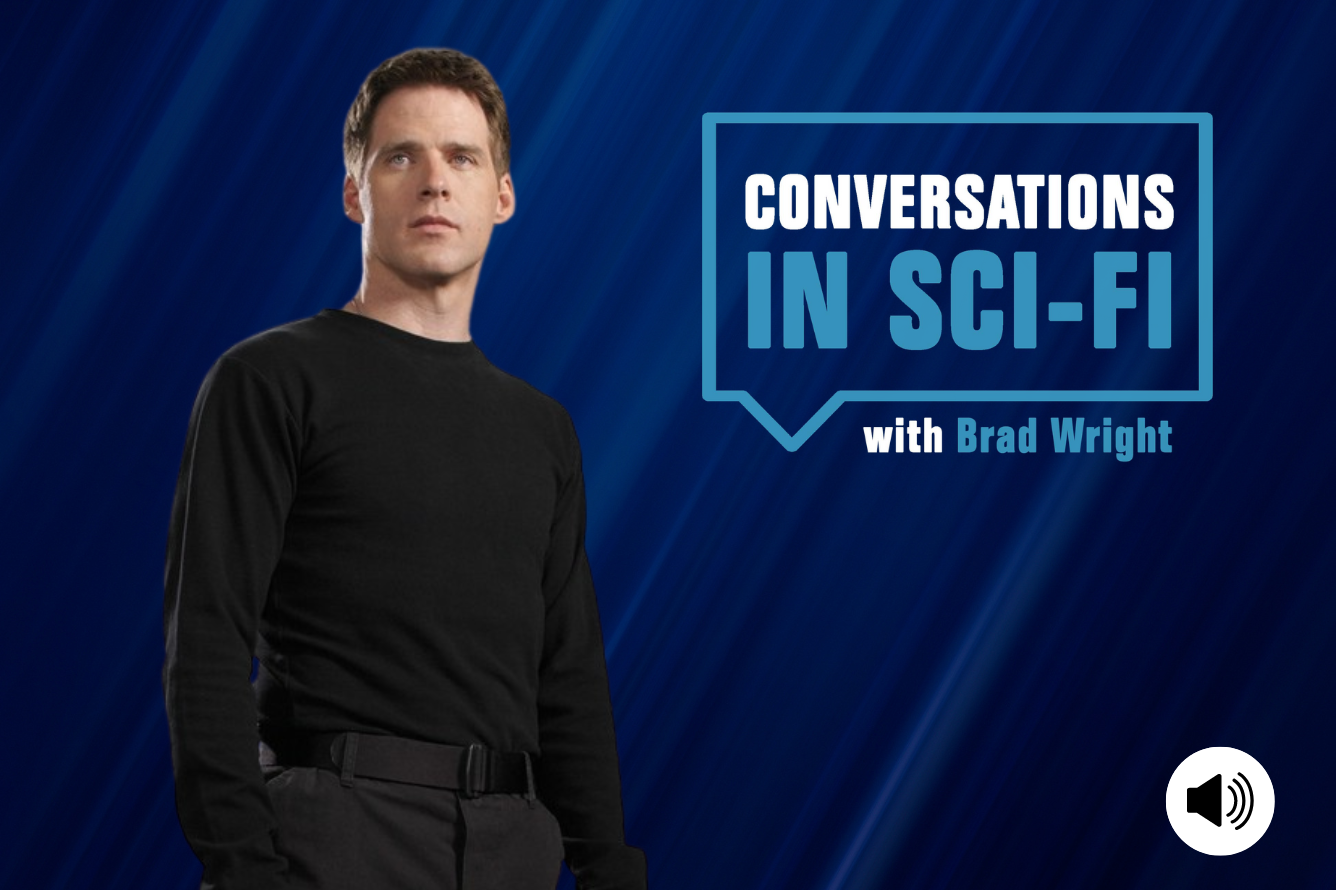
JOSEPH MALLOZZI: In terms of the types of stories we told, Jonas stepping in for Daniel didn’t really impact them, except that Daniel did serve a function and Jonas kind of stepped in and pulled up the slack to a certain degree. But it wasn’t Daniel Jackson specifically in terms of his archeological background, his knowledge of ancient cultures, and the like. At the same time, it’s always interesting to bring in a new character, because it kind of opens things up in certain ways. Yet I think with Daniel’s departure and Jonas’ arrival, it was kind of a wash.
BRAD WRIGHT: Michael was right that an evolution happened, though I’m not 100% sure it was when he left and came back. I mean, there was a natural change in the dynamic when Jonas came onto the show, but when he basically wanted to step back in, it made sense for Jonas to go back to his home world and for Michael to resume his role. And it was seamless; everybody just went, “Yeah, he’s back.” He and I ended up on good terms. To this day, I love seeing him. We’re not friends, but we’re definitely friendly and I would love to work with him again.
The changes with Rick were not shocking to me, because I was pre-emptive. Before that became a thing, I literally said, “Look, I want to try and keep you involved in the show as much as you want to be involved with the show, and we’re going to try to negotiate a number of episodes. So if you can give me six, that would be great.” We’d shoot some different scenes at the same time so that he could be with his daughter. It was so he could help raise her and he needed to be in her life. I got it — I stepped away and handed over the show for a time so I could be with my family. But I also wanted him to be involved because, A, it was important for the show, I thought; and, B, I think it was important for him. He liked working with us and had fun. My arguments, whenever they were about him, it was regarding money with his people. Sometimes it was, like, “Oh, come on, guys, I can’t throw that much money at six episodes. I need some help here.” So, again, I was pre-emptive and said, “Look, we’re going to ask you every year how many you want to do and we’ll write the season around that,” and that’s why he stuck around and why O’Neill showed up every now and then and why he was in the pilot for Stargate Universe. And it brought a certain brightness to the show. The other reason is that I didn’t want the audience to think of a “post- O’Neill” Stargate.
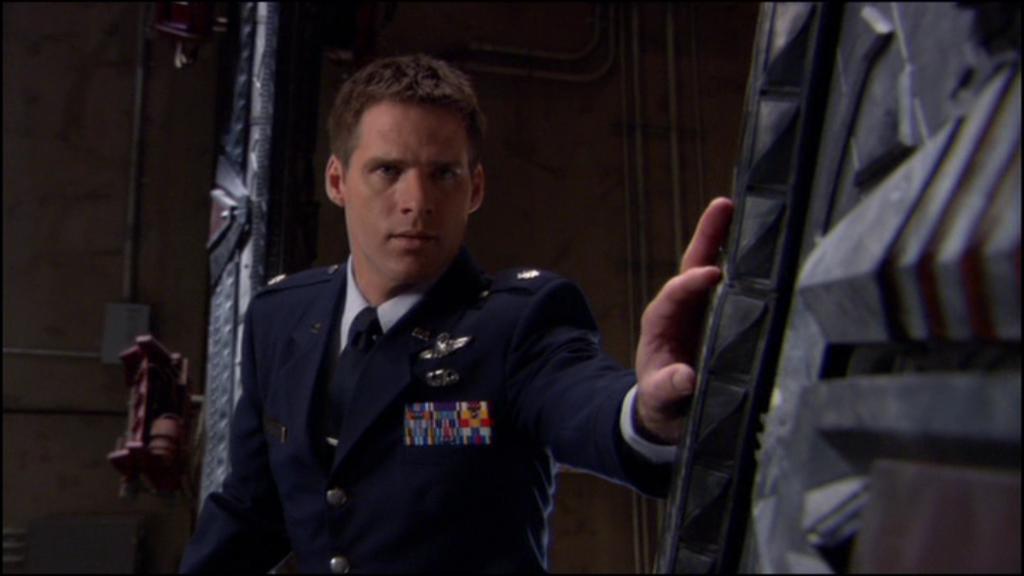
JOHN G. LENIC (production manager): Having new actors involved in the show, especially coming into a long-running series, is always new and exciting. Ben Browder and Claudia Black were fantastic. It was a nice fit. Richard Dean Anderson was spectacular all the time, but shooting around his schedule — he would only work three and a half days a week and had every fourth week off — Amanda, Chris, and Michael were working to the bone to accommodate his schedule. Going from that to all of a sudden not having to deal with that, and yet being able to do a show that was really about taking it in a new direction with the Ori, was exciting.
PAUL MULLIE: In episodic television, everything sets back to zero at the end and stays the same. We’d moved beyond that and were able to evolve and have a new voice as the leader of the team, who’s a different kind of dude, and play with that. And then Claudia came in and gave us a whole other element. I guess the show did change for all those reasons, but, for me, it was never anything that I noticed at the moment. I was just making the show and having fun.
JOSEPH MALLOZZI: Rick’s pulling back was a bigger change for us than Michael leaving. We missed his sense of humor, and to a certain degree, that’s what the Cameron Mitchell character brought back. Even though he was capable, he was still a bit of a fish out of water with regard to the Stargate program, so you’ve got to kind of play catch up and that was fun to explore. Vala, on the other hand, was just a delightfully off-the-wall character that I absolutely loved to write for. The funny thing is we asked for her to be a series regular and Sci-Fi said, “No, just give her six episodes.” And then, after they saw the six episodes, they were, like, “Let’s make her a series regular,” but we said, “At this point, that ship has sailed. If we get a 10th season, we’ll make her a series regular,” and we did. We had such a great time exploring her backstory; everybody loves a lovable rogue character. The fans certainly do and the writers even more so.
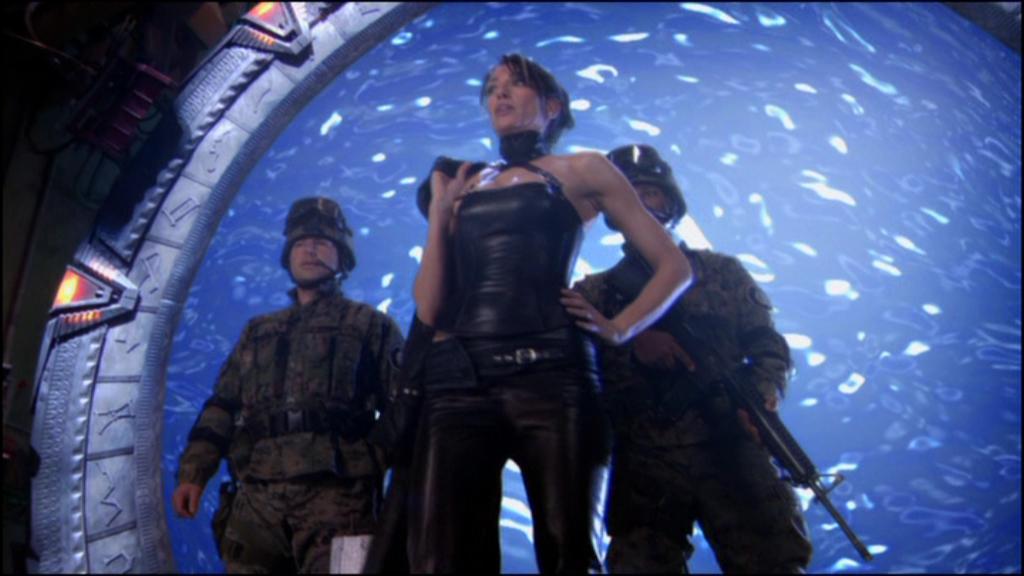
BRAD WRIGHT: Ben had that great attitude of not wanting the camera pushing in on him in his first episode, but to push in on the Stargate and him being in awe of it. Just a great shot that I remember vividly. We needed another general, and that’s where Landry came in and we got to work with Beau Bridges, who, by the way, is an amazing actor and a gift to work with. And with Ben and Claudia becoming a part of the show, Robert and I had proposed that we rebrand the show as Stargate Command and it would potentially have more legs that way. I suppose MGM was reticent because they didn’t know how many more years Sci-Fi wanted to give us and they thought it would benefit Atlantis more to have seasons nine and 10 of SG-1.
ROBERT C. COOPER: Ben just came so prepared and I will never forget that he was plastered to his couch for two weeks watching every episode of the show. He just came into this world with a much more fully-formed idea of what he wanted his character to be.
PAUL MULLIE: Things were definitely different without Richard Dean Anderson. There was a gap there for sure because he had been such an integral part of it for so long. But I think the show had sort of grown up around him. At first, it was Richard Dean Anderson and the rest of the show. Then, over time, the rest of the show grows up and he’s, like, “Well, I can leave now and this will stand on its own.” I think that’s exactly what happened in terms of who made that decision just to keep the show going or how confident they were about it still drawing its audience without him. So the choice would be to create an O’Neill clone, which would have been pointless, shallow, and stupid; or take advantage and create a new character and see where that takes the show.
BRAD WRIGHT: There was a bit of an irreverence that Mitchell had that I think O’Neill shared. He called Kassa space corn, because that’s what it was, and that’s something O’Neill would have said. So he picked up on that vibe and then ran with that while still being much more the physical fighter soldier. I mean, Ben did sword fights, and then he got down and dirty with real hand-to-hand stuff, which he liked doing. He’s just a couple of years younger than me and he was in pretty good physical condition to do all that stuff. And, of course, Vala is irreverent and hilarious and doesn’t replace anyone. Then you get into the Camelot storylines and the Ori storylines and because they are new, and because the bad guys are new, the dynamic between the team and the enemy also changed.
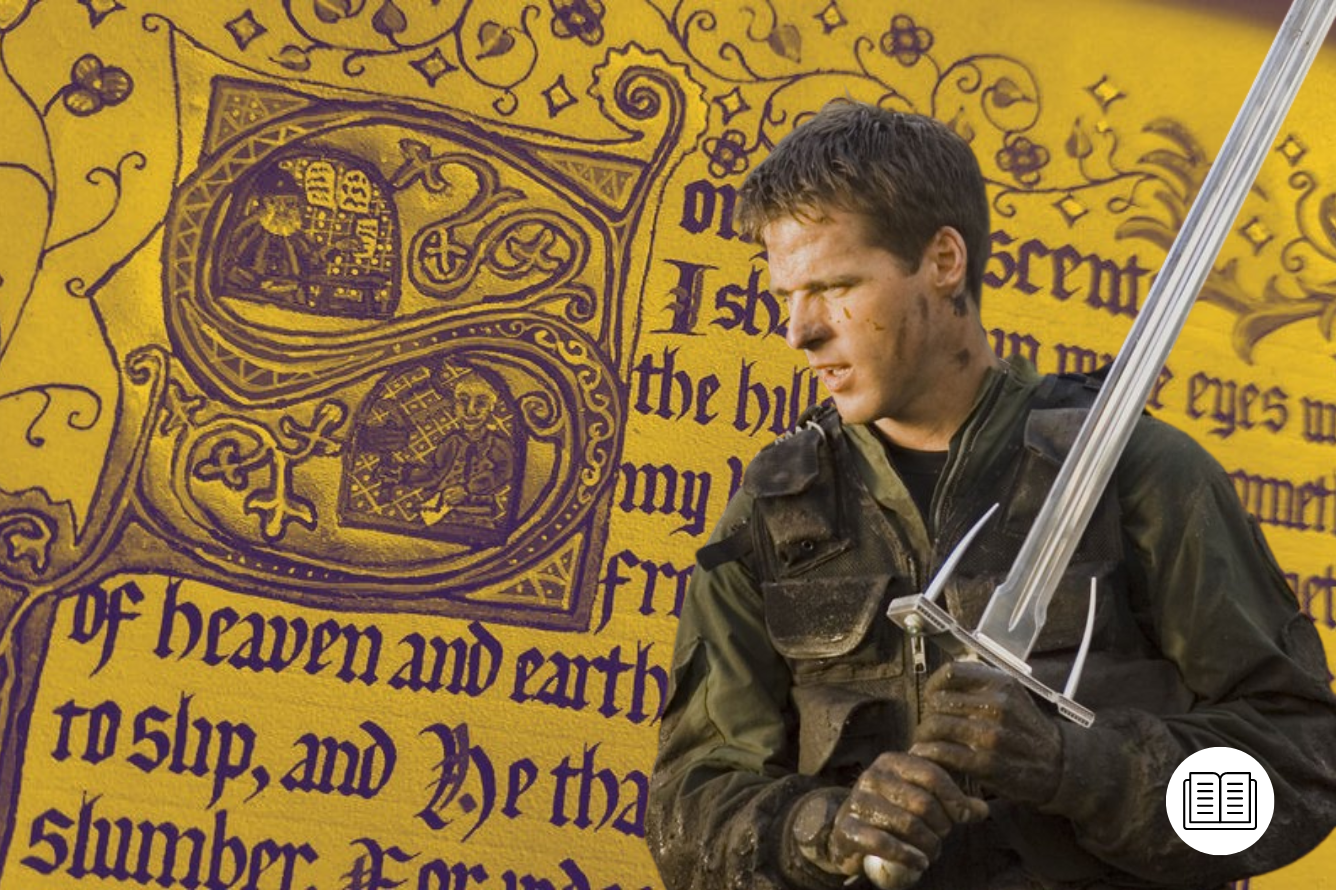
MICHAEL SHANKS (actor, “Daniel Jackson”): Obviously Claudia and I had a lot of fun working together and they wrote some great stuff for us to play off of in this kind of antagonistic dynamic that we established in “Prometheus Unbound.” It continued on; it was a really nice rapport that brought a nice energy to the show that we hadn’t really had on a regular, ongoing basis.
ROBERT C. COOPER: It frequently happened where we would bring in a guest character and they would be so exciting and reinvigorating that we’d be, like, “How do we bring them back for more?” That’s what made us think Claudia as Vala could be an interesting dynamic to bring into the show. She was irreverent and humorous in a way that still fit into the show, but with an angle that we hadn’t had before. But we knew we couldn’t just throw Vala on the team. One of the things that we all agreed we loved about her character was the fact that she’s a bit of an outsider with an attitude and that that attitude doesn’t necessarily fit right in immediately. And if you just suddenly had her change her personality and join the team and be accepted, it wouldn’t feel right. It would probably not be nearly as interesting as keeping her character as a bit of a wildcard.
MICHAEL SHANKS: Ben was very much the sort of stoic colonel that we needed. He’s got that Southern twang to his voice, which was a great, different voice for us. And he was a really assertive and specific actor. We had conversations about the scenes all the time. And then, of course, you have Beau Bridges. It was a completely different dynamic in a lot of different ways. They’re so professional and they’re such nice people. There were no egos in the room. Everybody just sat around in between takes either talking about the scene if necessary or having Beau Bridges tell a few stories about “this happened and that happened” and whatnot. The newness of it felt like a completely different show as well. By the end of Season 8, we solved a lot of threads and it was really good for this new way we were taking the show to really have these new people and these new energies, frankly. And they’re great characters, really well fleshed out, very intelligently fleshed out in terms of lots of dynamics between them.
JOSEPH MALLOZZI: Beau Bridges actually filled the void that was left by Don Davis. It was fun having Rick in charge, but Beau as General Landry brought a certain gravitas that we hadn’t seen in that role since Don S. Davis. I have to say, I really enjoyed working with Beau, because he and Robert Picardo, another guy who I love working with [on Atlantis], had a very similar approach. We had gotten used to actors winging it or changing their lines on set, but Beau and Bob were very particular. They always came up to the office and very respectfully would say, “We wanted to make some changes to the script and just wanted to run it by you to see if it’s okay.” Sometimes it would be the most inconsequential changes, like, “Can we change ‘the’ to ‘an’?” Particularly for Bob, who was on Star Trek: Voyager for so many years, and they were not allowed to change a single line. And if they ever did want to change a line, it would be a big song and dance where they would have to put a call into the producers who often weren’t on set and there would be a whole discussion where, more often than not, the answer would be no. But both of them were very seasoned actors with great instincts.
BRAD WRIGHT: Bringing in Beau Bridges is never going to hurt you and it was damn good. I loved him. Again, he provided a different dynamic to write that was fresh air for us. Ben is a serious actor, too. He has to know what he’s saying and why he’s saying it. He challenges writers but doesn’t just do it on the day of filming. He’s one of those guys who comes into your office and says, “I have a question about this sequence.” Sometimes it’s just a question. All I have to do is answer it, but he’s got a good old boy personality and is a thinking actor. He really is. And he brings such integrity to the set and cares about the work. He and Bridges — man, it was a privilege to work with them.
ROBERT C. COOPER: Beau Bridges is Beau Bridges. You knew he was going to be that general character. He’s just got that star quality, chemistry, and magnetism. He’s just one of those actors who looks at what’s on the page and asks them, but they also want to bring something to the table that is part of the creative process. You enjoy working with people like that because they’re doing some of your job for you.
This is an excerpt from Chevrons Locked: The Unofficial Unauthorized Oral History of Stargate SG-1 by Edward Gross. It is available to pre-order now from NacelleBooks and goes on sale on May 16th.
The cost of your membership has allowed us to mentor new writers and allowed us to reflect the diversity of voices within fandom. None of this is possible without you. Thank you. 🙂




